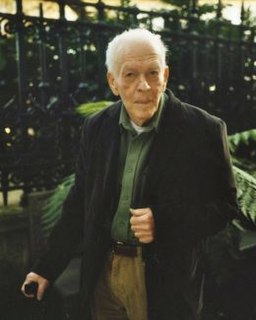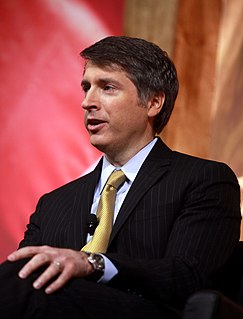Top 454 Opposing Quotes & Sayings - Page 8
Explore popular Opposing quotes.
Last updated on April 16, 2025.
Early in his life Mr. [Ezra] Pound met with strong, continued, and unintelligent opposition. If people keep opposing you when you are right, you think them fools; and after a time, right or wrong, you think them fools simply because they oppose you. Similarly, you write true things or good things, and end by thinking things true or good simply because you write them
Rather than thinking of sound and sense in my essays as two opposing principles, two perpendicular trajectories, as they are often considered in conversations around translation, or even as two disassociated phenomena that can be brought together to collaborate with more or less success, I think of sound as sense. Sound has its own meaning, and it's one of the many non-semantic dimensions of meaning in language. I want to emphasize is the formal dynamic between language-as-information and language-as-art-material.
The whole is a riddle, an enigma, an inexplicable mystery. Doubt, uncertainty, suspence of judgment appear the only result of ourmost accurate scrutiny, concerning this subject. But such is the frailty of human reason, and such the irresistible contagion of opinion, that even this deliberate doubt could scarcely be upheld; did we not enlarge our view, and opposing one species of superstition to another, set them a quarrelling; while we ourselves, during their fury and contention, happily make our escape into the calm, though obscure, regions of philosophy.
Nonviolent action involves opposing the opponent's power, including his police and military capacity, not with the weapons chosen by him but by quite different means. Repression by the opponent is used against his own power position in a kind of political "ju-jitsu" and the very sources of his power thus reduced or removed, with the result that his political and military position is seriously weakened or destroyed.
Instead of agitating for war, the Jewish groups in this country should be opposing it in every possible way, for they will be among the first to feel its consequences. Tolerance is a virtue that depends upon peace and strength. History shows that it cannot survive war and devastation. A few very far-sighted Jewish people realize this and stand opposed to intervention. But the majority still do not. Their greatest danger to this country lies in their ownership and influence in our motion pictures, our press, our radio, and our government.
Do you call the people in Los Angeles in the nineties - do you call them rebels or opposition ? They are rebels. They are not rebels even, they are beheading. This opposition, opposing country or government, by beheading ? By barbecuing heads ? By eating the hearts of your victim ? Is that opposition ? What do you call the people who attacked the two towers on the 11th of September ? Opposition ? Even if they're not Americans, I know this, but some of them I think have nationality - I think one of them has American nationality. Do you call him opposition or terrorist ?
To take estrogen or not to take estrogen:
That is the question.
Whether 'tis nobler to abstain and suffer
The sweat and puddles of outrageous flashes
Or to take arms against a sea of mood swings,
And by opposing end them? To die: to sleep;
No more; at first the studies say 'twill end
The heart attacks and thousand bouts of bloat
That flesh is heir to, 'tis a true confusion -
For then they say 'twill cause us all to die
Perchance from breast cancer; ay, there's the rub;
For who can dream or even sleep while worrying about
What doctors might be saying come next week?
Our support for the Shah, the CIA coup in 1953 - has become infused into the Iranian political discourse. The regime that came to power in 1979 during the Iranian revolution actually defined itself as anti-American, and that's now a critical ingredient in the Iranian domestic political debate. That really is the source of our problems - the regime in Tehran continues to see itself as opposing the US. In their eyes, everything the US does is directed at them in a very malevolent way, and therefore they have to fight back against it.
In opposing we always talk about freedom in the Western world, Muslims always talk about justice. Very often we mean the same thing. But what we do mean, what in the Western world we call human rights, in the Islamic world, they don't talk about rights. Now they do, but in the past they didn't. It wasn't part of their terminology. But really it's the same thing.
I've always wondered if people who block each other from expressing their opinions do so because they have so little confidence in their own. To me, encountering an opposing point of view is a chance to gain a deeper understanding of the issues at stake and develop my own point of view. But the first thing you've got to do is you've got to let people speak and you've got to listen. And that's what the first amendment is all about. That's what really distinguishes this country from others.
The very word "secrecy" is repugnant in a free and open society; and we are as a people inherently and historically opposed to secret societies, to secret oaths and to secret proceedings. We decided long ago that the dangers of excessive and unwarranted concealment of pertinent facts far outweighed the dangers which are cited to justify it. Even today, there is little value in opposing the threat of a closed society by imitating its arbitrary restrictions. Even today, there is little value in insuring the survival of our nation if our traditions do not survive with it.
We need to take information, wherever it is stored, make our copies and share them with the world. We need to take stuff that's out of copyright and add it to the archive. We need to buy secret databases and put them on the Web. We need to download scientific journals and upload them to file sharing networks... With enough of us, around the world, we’ll not just send a strong message opposing the privatization of knowledge - we’ll make it a thing of the past. Will you join us?
How many of us have conflicts with someone else- and how many of us pray for that person? We have individuals with whom we are competitive, or whom we dislike or have a quarrel with; but very few of us have true enemies in the martial sense. And yet if Lincoln could pray fervently- and contemporary reports indicate he did- for the people who were opposing him, how much more can we do for someone we just find a little irritating?
Has God no living church? He has a church, but it is the church militant, not the church triumphant. We are sorry that there are defective members. . . . While the Lord brings into the church those who are truly converted, Satan at the same time brings persons who are not converted into its fellowship. While Christ is sowing the good seed, Satan is sowing the tares. There are two opposing influences continually exerted on the members of the church. One influence is working for the purification of the church, and the other for the corrupting of the people of God.
So the Midwest nourishes us [...] and presents us with the spectacle of a land and a people completed and certain. And so we run to our bedrooms and read in a fever, and love the big hardwood trees outside the windows, and the terrible Midwest summers, and the terrible Midwest winters [...]. And so we leave it sorrowfully, having grown strong and restless by opposing with all our will and mind and muscle its simple, loving, single will for us: that we stay, that we stay and find a place among its familiar possibilities. Mother knew we would go; she encouraged us.
Peter Beinart excoriates the doughface liberals who during the Cold War put anti-imperialism before anti-totalitarianism and demanded total moral purity on the part of the United States, thus opposing any action in the real world to resist Soviet expansionism. If the Democrats were, as he advocates, to return to the Trumanesque anti-totalitarian liberalism that held sway in the party from roughly 1947 to 1972, the party and the country would be better off.
I was morose that the Era of Barack Obama has returned us to a period where everything is racist, everyone is walking on eggshells, and you get the moral preening from white liberals who don't actually even know any black people. But, oh, do they love to get on their high horses and accuse Republicans of being racist for opposing very liberal government policies and a very liberal Democratic president. It's an extension of the civil rights label being slapped on gay marriage and abortion. Allow me to be bi-partisan for a moment, and love this moment because it won't last long.
I am opposing it with an idea of the history of philosophy as a history of philosophers, that is, a history of mortal, fragile and limited creatures like you and I. I am against the idea of clean, clearly distinct epochs in the history of philosophy or indeed in anything else. I think that history is always messy, contingent, plural and material. I am against the constant revenge of idealism in how we think about history.
We were very effective, and I was very effective, in shaping public opinion around my campaigns. But there were big stretches, while governing, where even though we were doing the right thing, we weren't able to mobilize public opinion firmly enough behind us to weaken the resolve of the Republicans to stop opposing us or to cooperate with us. And there were times during my presidency where I lost the PR battle.
When I was arrested opposing the war in Vietnam in 1965, as I said about 20 or 30% of people were opposed to the war. By 1968, more than half of Americans were opposed to the war. If you pull in Europeans, Canadians, people from around the Third World, the war was vastly unpopular. But even half of Americans by 1968 opposed the war.
... In contrast to the "banality of evil," which posits that ordinary people can be responsible for the most despicable acts of cruelty and degradation of their fellows, I posit the "banality of heroism," which unfurls the banner of the heroic Everyman and Everywoman who heed the call to service to humanity when their time comes to act. When that bell rings, they will know that it rings for them. It sounds a call to uphold what is best in human nature that rises above the powerful pressures of Situation and System as the profound assertion of human dignity opposing evil.
Mexicans who come to America today end up opposing assimilation. They say they are "holding on to their culture." To them, I say, "If you really wanted to hold on to your culture, you would be in favor of assimilation. You would be fearless about swallowing English and about becoming Americanized. You would be much more positive about the future, and much less afraid. That's what it means to be Mexican.
Uncertainty hurts business. It annoys individuals. Why keep the whole country, including business and individuals, in uncertainty over the extent of the tax burdens to be placed upon us? How many of those who voted for Calvin Coolidge imagined for a moment that would do nothing to bring about tax relief before 1926?.... But if the Administration persists in opposing a special session then it will inevitably be 1926 before action is taken.... Coolidge and Congress should ease our minds and grease our activities by reforming and reducing taxation as soon as feasible after March 4.
Indeed, religion allows people to imagine that their concerns are moral when they are highly immoral - that is, when pressing these concerns inflicts unnecessary and appalling suffering on innocent human beings. This explains why Christians like yourself expend more "moral" energy opposing abortion than fighting genocide. It explains why you are more concerned about human embryos than about the lifesaving promise of stem-cell research. And it explains why you can preach against condom use in sub-Saharan Africa while millions die from AIDS there each year. (25)
To some people, surrender may have negative connotations, implying defeat, giving up, failing to rise to the challenges of life, becoming lethargic, and so on. True surrender, however, is something entirely different. It does not mean to passively put up with whatever situation you find yourself in and to do nothing about it. Nor does it mean to cease making plans or initiating positive action. Surrender is the simple but profound wisdom of yielding to rather than opposing the flow of life.
Why certainly I'd like to have that fellow who hits a home run every time at bat, who strikes out every opposing batter when he's pitching, who throws strikes to any base or the plate when he's playing outfield and who's always thinking about two innings ahead just what he'll do to baffle the other team. Any manager would want a guy like that playing for him. The only trouble is to get him to put down his cup of beer and come down out of the stands and do those things.
The path of self-purification is hard and steep. One has to become absolutely passion-free in thought, speech and action to rise above the opposing currents of love and hatred, attachment and repulsion. I know that I have not in me as yet that triple purity in spite of constant ceaseless striving for it. That is why the world's praise fails to move me, indeed it very often stings me. To conquer the subtle passions seems to me to be harder far than the physical conquest of the world by the force of arms.
Ideas need to stand out to be noticed. There is so much noisy information out there that if your message is bland, it won't be heard or acted upon. To avoid obscurity, you need to clash with your environment. Incorporating contrast into your presentation will help it stand out. You create contrast by using the presentation form. For example, you can state the problem, then the solution. State an opposing perspective, then your perspective. State the past, then your picture of the future. Adding the cadence of contrast will pull your idea out of obscurity.
Ace of Spades says that this became clear to him in a revelation one night. He was watching Chris Matthews interview [Barack] Obama, and he didn't get one question! He didn't ask Obama one question about how Obamacare works. Every question was one degree or another: How do you feel about [John] Boehner opposing it? How do you feel about it? What will make you happy? Do you think you can get it? [It] was irrelevant!
The effect of emotional venting is to sustain an unsatisfactory status quo. Most people think the opposite, that complaining is part of an effort to change an unsatisfying situation. Nope. Complaining lets off pressure so that we neither explode with frustration nor feel compelled to take the often risky steps of openly opposing a difficult person or situation. Keeping emotional pressure tolerably low doesn't change problematic circumstances but rather perpetuates them.
The most effective way to close down the human mind and to manipulate its sense of self is to program into it some form of dogma. A dogma will always vehemently defend itself from other information and repel any alternative opinion which contradicts its narrow, solidified view. Dogmas become a person's sense of security and means of retaining power, and humanity tends to cling to both until its knuckles turn white. Dogmas take endless forms, and when you can persuade different people to hold opposing dogmas, the manipulation of conflict and control through "divide and rule" becomes easy.
It's not fear of striking out that makes me reluctant to step up to the plate. It's the fear of getting hit in the head by a 90 mph fastball, the pitcher coming off of the mound to stomp me with her cleats while I am down, the rest of the opposing team rushing out of the dugout hurling insults as they kick me and spit on me, while all along the crowd in the stands is cheering them on and laughing at my failure. So, no, it's not the fear of striking out that keeps me from stepping up to the plate.
To regulate something always requires two opposing factors. You cannot regulate by a single factor. To give an example, the traffic in the streets could not be controlled by a green light or a red light alone. It needs a green light and a red light as well. The ratio between retine and promine determines whether there is any motion, any growth, or not. Two different inclinations have to be there in readiness to make the cells proliferate.
The interests behind fracking are very powerful and they've managed to control the dialogue for a while, because they have forced people to sign disclosure agreements; people who have had negative experiences who are not able to speak out because they've signed disclosure agreements with the gas companies. Things like this. They've managed to strangle the opposing viewpoint, but it does seem like the people who are against fracking have started to gain some traction and the realities of what an environmental nightmare it is are starting to become known.

































